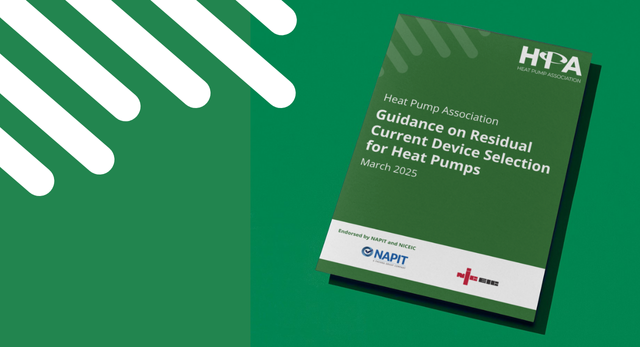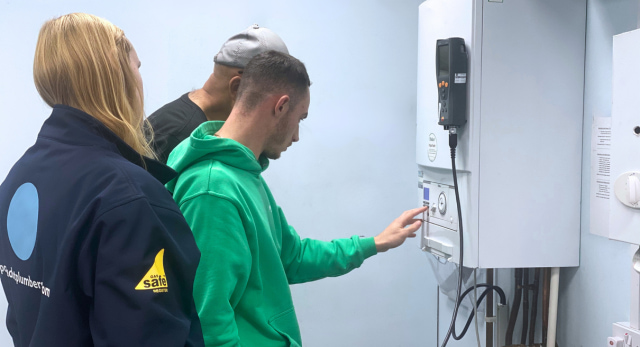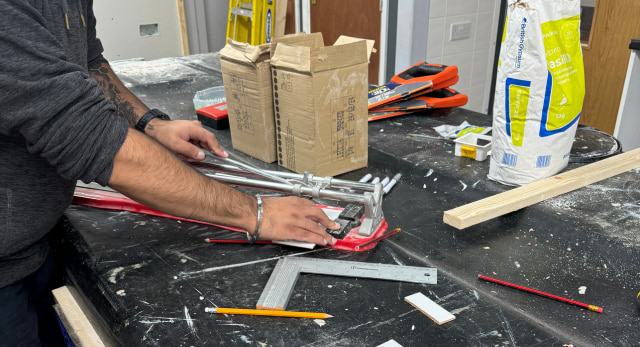The Heat Pump Association (HPA), in collaboration with NAPIT and NICEIC, has published new guidance for heat pump installers on Residual Current Device (RCD) selection and application.
With the rapid growth of heat pump installations across the UK, with nearly 100,000 units sold in 2024 alone, this guidance arrives at a crucial time for the industry, supporting both safety and compliance as the sector scales to meet decarbonisation targets.
Who Should Read This Guidance?
The Heat Pump Association’s RCD Guidance is essential for:
- Heat pump installers and electrical contractors
- System designers and specifiers
- Anyone seeking to understand compliance with BS 7671 and product safety standards
The guidance is endorsed by both NAPIT and NICEIC, underlining its importance for competent persons and MCS-accredited installers27.
Why Is RCD Selection So Important for Heat Pump Installations?
Heat pumps, especially those with inverter-driven compressors, introduce unique electrical characteristics into domestic installations. These can include AC leakage currents with frequencies above and below 50 Hz, as well as DC components. Such mixed-frequency and DC residual currents are not reliably detected by standard Type A RCDs, making correct RCD selection essential for both safety and system reliability.
Key Takeaways from the HPA RCD Guidance
1. Follow the Manufacturer’s Instructions First
Always consult the heat pump manufacturer’s installation instructions. If RCD protection is required, the type specified by the manufacturer should be used to ensure compliance and maintain product warranties.
2. Understand When RCD Protection Is Required
Not every heat pump circuit needs RCD protection. For example, if cables are mechanically protected (e.g., in earthed metal conduit), additional RCDs may not be necessary. However, this is not typical for most domestic installations, so RCD protection is usually required.
3. Selecting the Right RCD Type
The guidance outlines three RCD types commonly considered for heat pump installations:
- Type A: Suitable for AC and pulsed DC up to 6 mA. It is important to note that Type A RCDs are not suitable for inverter-driven heat pumps with mixed frequency currents.
- Type F: Suitable for composite residual currents, including up to 10 mA smooth DC. Type F RCDs are often required for modern inverter-driven heat pumps.
- Type B: Suitable for all residual currents, including high levels of smooth DC. Type B RCDs offer the broadest protection but is most the expensive. They should be used if equipment characteristics are unknown.
Type AC RCDs are not suitable for heat pumps due to their inability to detect DC components and high-frequency leakage.
4. What If Manufacturer Guidance Is Lacking?
If the manufacturer does not specify an RCD type, consult Table 1 in the HPA guidance or contact the manufacturer for clarification. If uncertainty remains, Type B RCDs should be used for maximum safety.
5. Coordinating RCDs in Consumer Units
When adding a heat pump to an existing consumer unit, compatibility and coordination of RCD types are critical. Mixing different brands or types can compromise safety and may not comply with BS 7671 regulations. Sometimes, installing a dedicated consumer unit for the heat pump is the safest option.
6. Consequences of Incorrect RCD Selection
Using the wrong RCD can lead to nuisance tripping, failure to disconnect in fault conditions, or even “blinding” of the RCD—where it fails to detect dangerous currents. This can pose serious safety risks and may invalidate warranties.
Download the HPA RCD Guidance
Access the full HPA RCD Guidance (March 2025) directly from the Heat Pump Association’s Technical Resource page.
Advance Your Heat Pump Knowledge with Logic4training
Staying up to date with best practices and regulatory changes is essential for every installer. If you’re looking to expand your skills or gain recognised qualifications, Logic4training offers a range of heat pump training courses:
- Air Source Heat Pump Training: LCL Awards Level 3 qualification, recognised by MCS, covering installation, commissioning and maintenance of air source heat pumps.
- Ground Source Heat Pump Training: For those wishing to top up their skills to include ground source systems, with a focus on industry standards and system design.
- Low Temperature Heating and Hot Water Systems: Essential for all heating system designers and installers, supporting compliance with new regulations and efficient system operation.
Conclusion
The new HPA RCD Guidance is a must-read for anyone involved in heat pump installations. It demystifies RCD selection, supports compliance with current regulations, and helps ensure safe, reliable, and efficient heat pump systems. Download your copy today and make sure your installations are up to standard.
For those looking to upskill or get qualified, Logic4training is your trusted partner for heat pump and renewable energy training.
Download the HPA RCD Guidance now and take the next step in your professional development.
For more information on Logic4training’s courses and offers, visit our Heat Pump Training Courses page.
Frequently Asked Questions (FAQ)
Why are standard Type AC RCDs not suitable for heat pump installations?
Type AC RCDs cannot reliably detect DC or mixed-frequency leakage currents produced by inverter-driven heat pumps. Using them can result in undetected faults or nuisance tripping. The HPA guidance recommends Type F or Type B RCDs for most modern heat pumps.
What should I do if the heat pump manufacturer does not specify an RCD type?
If the manufacturer’s instructions are unclear, refer to Table 1 in the HPA RCD Guidance. When in doubt, Type B RCDs provide the highest level of protection.
Do I need to install a dedicated consumer unit for a heat pump?
Not always, but it is often recommended if the existing consumer unit cannot accommodate the required RCD type or if coordination between different RCDs cannot be achieved. This ensures compliance and system reliability.
Can incorrect RCD selection affect my MCS accreditation or product warranty?
Yes. Using the wrong RCD type can invalidate both MCS accreditation and manufacturer warranties, as it may not meet safety standards or installation requirements.
Where can I get training on the latest heat pump installation standards and best practice?
Logic4training offers a range of heat pump training courses covering installation, commissioning, and compliance with the latest standards, including RCD selection and electrical safety.









